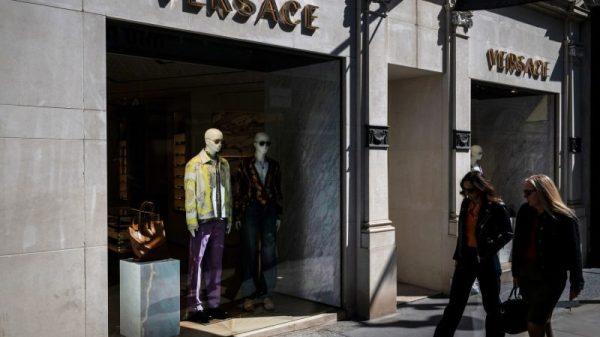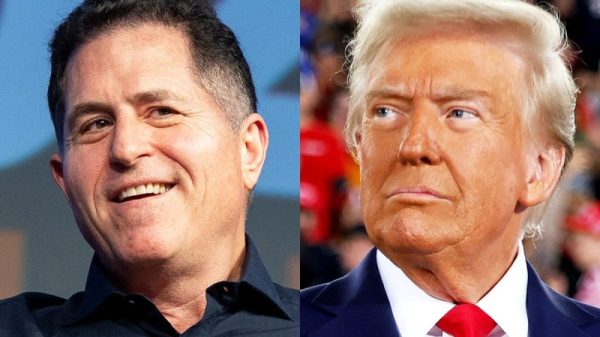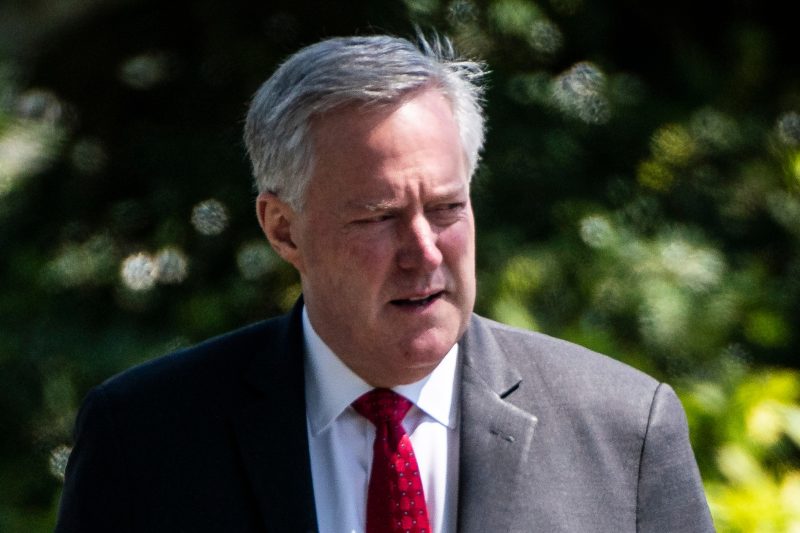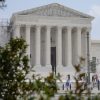A whole lot of Donald Trump associates are now engaged in — or about to be engaged in — a delicate dance. Pushing them in one direction: a desire to extricate themselves from legal jeopardy in the plot to overturn the 2020 election. Pulling them in the other: a need to distance themselves from Trump in order to do so.
Former Trump White House chief of staff Mark Meadows offered a particularly strained version of that dance last week. The subject most difficult for him appeared to be the fake electors.
Meadows’s attempts to minimize his involvement in that effort quickly prompted Fulton County, Ga., District Attorney Fani Willis to call his credibility into question. Willis didn’t accuse Meadows of perjury, but she said in a court filing that he had demonstrated to the judge that he “has ample basis not to credit some or all of the defendant’s testimony.”
The Washington Post has now obtained a full transcript of Meadows’s testimony, allowing us to evaluate his specific words and Willis’s claim.
The exchange began:
This appeared to surprise the prosecutor, who responded incredulously, “No role at all?”
Meadows claimed he could recall only one instance “when somebody raised the issue with me and I referred it on to the campaign.”
They continued:
The prosecution quickly presented an exhibit it cast as calling Meadows’s claim into question. It shared Dec. 6, 2020, emails between Meadows and Trump campaign aide Jason Miller in which Meadows tells Miller, “We just need to have someone coordinating the electors for the states.”
(This was one of multiple junctures at which Meadows contended that his use of “we” referred to the campaign and didn’t include himself — another example of his not having an easy time distancing himself.)
Willis’s team didn’t mention this in its court filing, but that’s not the only evidence of Meadows’s proximity to the fake-elector effort. His former aide Cassidy Hutchinson testified to the House Jan. 6 committee that he kept tabs on it.
Asked specifically about Meadows’s “role … in coordinating” the electors, Hutchinson said he was “involved” and agreed that he was following the progress of the effort. Asked how many calls or meetings involving Meadows included talk of the electors, she said, “Dozens would be accurate.”
After the prosecution shared the Miller emails at last week’s hearing, Meadows’s lawyer tried to recast the issue.
Meadows lawyer George J. Terwilliger III chewed over the “we” issue again and then dug into why Meadows was involved at all. Meadows said it was because he didn’t want to get “yelled at” by Trump:
The situation boils down to what is meant by “role” and “coordinate.” Meadows’s argument appears to hinge on the idea that he wasn’t actually reaching out to electors himself or spearheading that process.
But one could certainly play a “role … in coordinating” — the phrase Meadows flatly denied applied to him — without actually doing the coordinating oneself. Meadows explicitly told Miller that “we” needed to have someone “coordinating” them, a comment that could at least serve a role in spurring the coordination process.
Meadows’s own attorney effectively granted that Meadows had an interest in the electors being “coordinated” and acted in accordance with that — because he didn’t want to get yelled at.
Asked for further detail about his client’s claim, Terwilliger told The Post, “Mr. Meadows’ testimony in the Georgia case clearly says he had no role ‘coordinating’ electors, and it speaks definitively for itself.”
Meadows was testifying as part of an effort to get his case “removed” from Fulton County to federal court. The idea is that he was acting in accordance with his duties as a federal official rather than on behalf of the Trump campaign.
We don’t know yet whether he’ll succeed. If he does, Trump could soon follow suit in seeking removal of his case.
But if this is indicative of what’s ahead, we should expect plenty of pained efforts to deal with the evidence at hand — and the defendants’ proximity to Trump’s plot.
Holly Bailey contributed to this article.





























